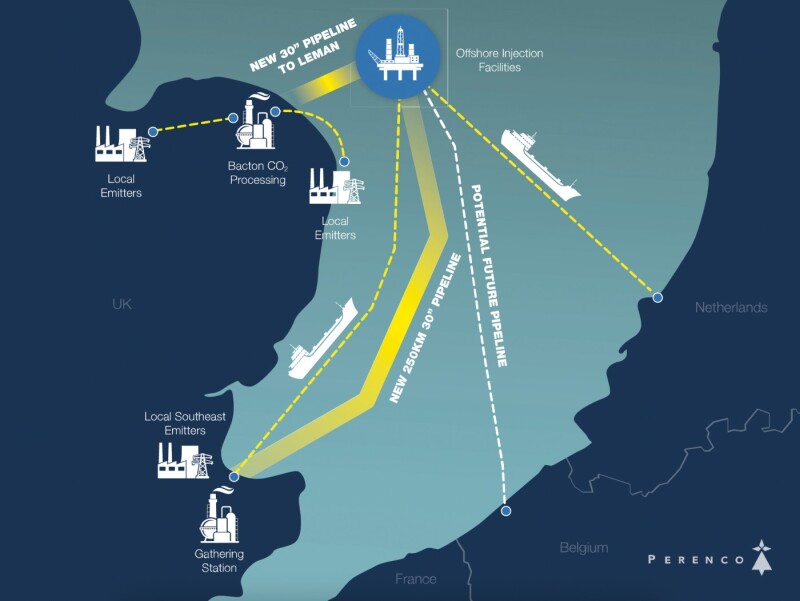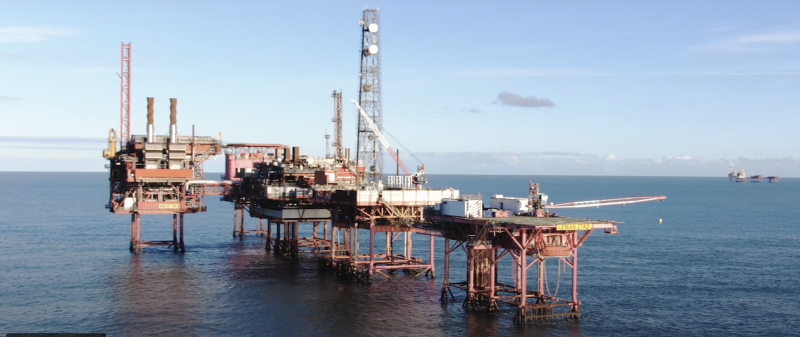Perenco has wrapped up a carbon dioxide (CO2) injection test for carbon capture and storage (CCS) into a depleted natural gas reservoir in the UK’s southern North Sea.
Perenco announced the Project Poseidon injection test milestone on 9 April.
The test was conducted by the Project Poseidon Joint Venture, consisting of Perenco UK, Carbon Catalyst, and Harbour Energy.
The Poseidon injection test involved delivering 15 injection cycles into the Leman gas field, mobilizing 11 CO2 offshore batch refills.
Perenco said the program acquired “an exceptional dataset” and was performed safely and without injection issues.
Perenco CEO Armel Simondin said in a news release that the test met expectations, both in terms of technical execution and quality of gathered data.
“These insights are instrumental as we move to the next phase of developing the Poseidon project,” he said. “The Perenco CCS team and our joint venture partners are now fully focused on interpreting the results and converting new insights into an evidence-based development plan for Project Poseidon.”

Achieving those results required collaboration across several organizations involved in the energy industry, CCS, and service sectors, Perenco said. That collaboration was coordinated by Perenco UK, Petrodec, and Dixstone.
Petrodec’s ERDA rig conducted the injection and has sailed away from the Leman 27H platform.
Project Poseidon is expected to have an initial injection capacity of 1.5 million tonnes per year (mtpa) of CO2 in 2029, ramping to about 10 mtpa by 2034 and rising over time to an ultimate capacity of 40 mtpa. It is using the Leman field, which is the largest reservoir complex on the UK continental shelf (UKCS) and offers a mixture of depleted gas reservoirs and saline aquifers for permanent CO2 storage. Ultimate storage capacity is about 1,000 Mt. The field is connected to the PUK Bacton Terminal, which will receive and process CO2 offshore.
Perenco said it anticipates a final investment decision in 2026.


